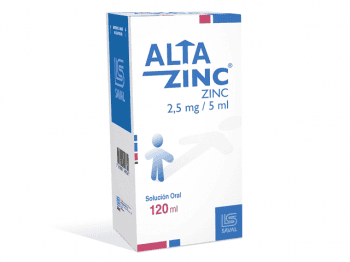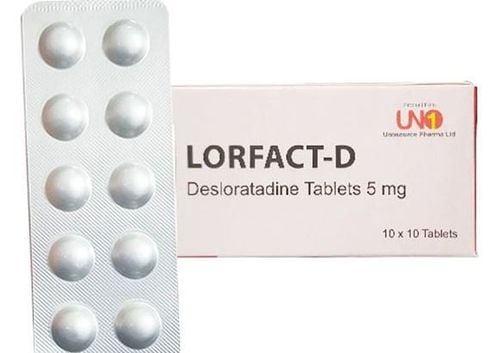This is an automatically translated article.
Otivacin belongs to a group of drugs used to treat the eyes and ears, nose and throat. The drug is in the form of a solution for eye, nose and ear drops, packed in a box of 1 vial x 8ml. Knowing the necessary information of Otivacin drug about ingredients, uses, doses and side effects will help improve treatment results for patients.
1. Uses and indications of Otivacin
Otivacin medicine contains the main ingredients Neomycin (as Neomycin sulfate) 28,000IU and Dexamethasone phosphate (as Dexamethasone sodium phosphate) 8mg. The drug is indicated for the treatment of the following conditions:
Pink eye ; Trachoma ; Eye discharge; Sniffing eyes; Eye surgery; Ear rot; Purulent ear discharge; Watery ears; Ear surgery. Note: The use of Otivacin medicine can also be used for diseases in addition to indicated cases. However, the drug can cause serious effects when the patient does not use it exactly as directed. Therefore, always consult a medical professional first to ensure that Otivacin is used correctly for the disease.
2. Contraindications of Otivacin
Otivacin is contraindicated in case the patient has a history of hypersensitivity to any ingredient of the drug.
3. Instructions for taking Otivacin
Patients take Otivacin by instillation directly into the eyes, nose or ears. About 2-3 drops each time, 2-3 times a day. In severe cases, the drug can be instilled every 1-2 hours. When the disease is in remission, the dose of the drug should be gradually reduced before stopping completely.
Before instilling Otivacin, the patient should wash their hands thoroughly and dry them. In the process of instilling Otivacin, care must be taken not to let the tip of the vial touch the eye to avoid damage to the cornea.
Note: Otivacin dosage above is for reference only. The specific dose of Otivacin depends on the condition and the progression of the disease. To get the right dose of Otivacin, patients should consult their doctor or healthcare professional.
4. Otivacin side effects
Otivacin has a high level of safety and is less likely to have unwanted side effects. However, using Otivacin in high doses or for a long time, can cause unwanted effects such as:
Glaucoma; Glaucoma; Damage to the optic nerve; Secondary eye infections; Fungal infections. The side effects of Otivacin are still being analyzed and monitored in patients with the same experimental results. The above cannot be said to be all effects of Otivacin. However, based on that, the patient can prevent dangerous effects caused by side effects.
In addition, patients need to stop using Otivacin as soon as they detect the above side effects or other unusual symptoms. At the same time, quickly notify the treating doctor or immediately go to the nearest medical facility for timely treatment.
5. Precautions when using Otivacin
Do not use Otivacin for people with hypersensitivity. Long-term use of Otivacin can cause erosion of the cornea or sclera. Pregnant and nursing women should consult their doctor before taking Otivacin. In the event that a dose of Otivacin is missed, it should be taken as soon as possible. However, if it is almost time for the next dose, skip the missed dose of Otivacin and use a new dose. When using Otivacin drug overdose, the patient should stop the drug immediately and go to the nearest medical facility for timely treatment. Absolutely do not use when the drug Otivacin has signs of discoloration, mold, watery or expired. Above is all information about Otivacin, patients need to carefully read the instructions for use, consult a doctor / pharmacist before using. Absolutely do not arbitrarily buy Otivacin treatment at home because there may be unwanted side effects.
Please dial HOTLINE for more information or register for an appointment HERE. Download MyVinmec app to make appointments faster and to manage your bookings easily.













